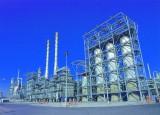Fluor is among a suite of contractors tapped by the Kuwait National Petroleum Company (KNPC) to build the $15.9 billion 615,000 bpd oil refinery project south of Kuwait City, named Al-Zour, increasing Kuwait’s refining capacity by more than 50%. “Al Zour refinery along with other ongoing mega projects will change the landscape of the oil refining industry in Kuwait,” Mohammad Ghazi Al-Mutairi, head of KNPC, said during a signing ceremony in Kuwait on October 20. Other firms awarded work for the Al Zour refinery that is scheduled to be operational by 2019 include Spain’s Tecnicas Reunidas, and Daewoo Engineering & Construction and Hyundai Heavy Industries, both of Korea, as well a several technology licensors.
According to information available in the public domain, the Al Zour refinery will be designed to process 615,000 bpd of Kuwait export crude (KEC) or 535,000 bpd of mixed heavy crudes. The refinery will include three atmospheric residue desulfurization (ARDS) units employing Chevron Lummus Global technology featuring two trains each, three crude distillation units (CDUs) designed by Fluor, two kerosene hydrotreating units and two naphtha hydrotreating units designed by Haldor Topsoe, and three diesel hydrotreating units designed by Shell Global Solutions. Other facilities include two saturated gas processing plants and four trains of hydrogen production units. The back-end of the process plant will include a sour water stripper unit comprised of three trains, three amine regeneration units, three sulfur recovery units (SRUs) and tail gas treating units (TGTUs) designed by Shell Global Solutions.
The expansion comes at a time of uncertainty for world economies, which is why refinery expansion in North America has come to a halt while refinery capacity in Europe has actually retrenched. Recently, the fastest refinery growth between 2010 and 2013 came in China, India and Saudi Arabia, all of which increased capacity by at least 14%, according to data from the Organization of Petroleum Exporting Countries (OPEC). Kuwait, on the other hand, had not increased its refining capacity since 2004.
The Al-Zour project was first announced in 2005 but was delayed by political infighting and the global financial crisis in 2008. A better assessment will be forthcoming in early 2016. For now, it is understood the refinery will primarily supply 225,000 bpd of low sulfur fuel oil (LSFO) to local power plants, while also producing jet fuel, kerosene and naphtha feedstsock for petrochemical plants. Site preparation work has already begun.








Leave a Reply
You must be logged in to post a comment.